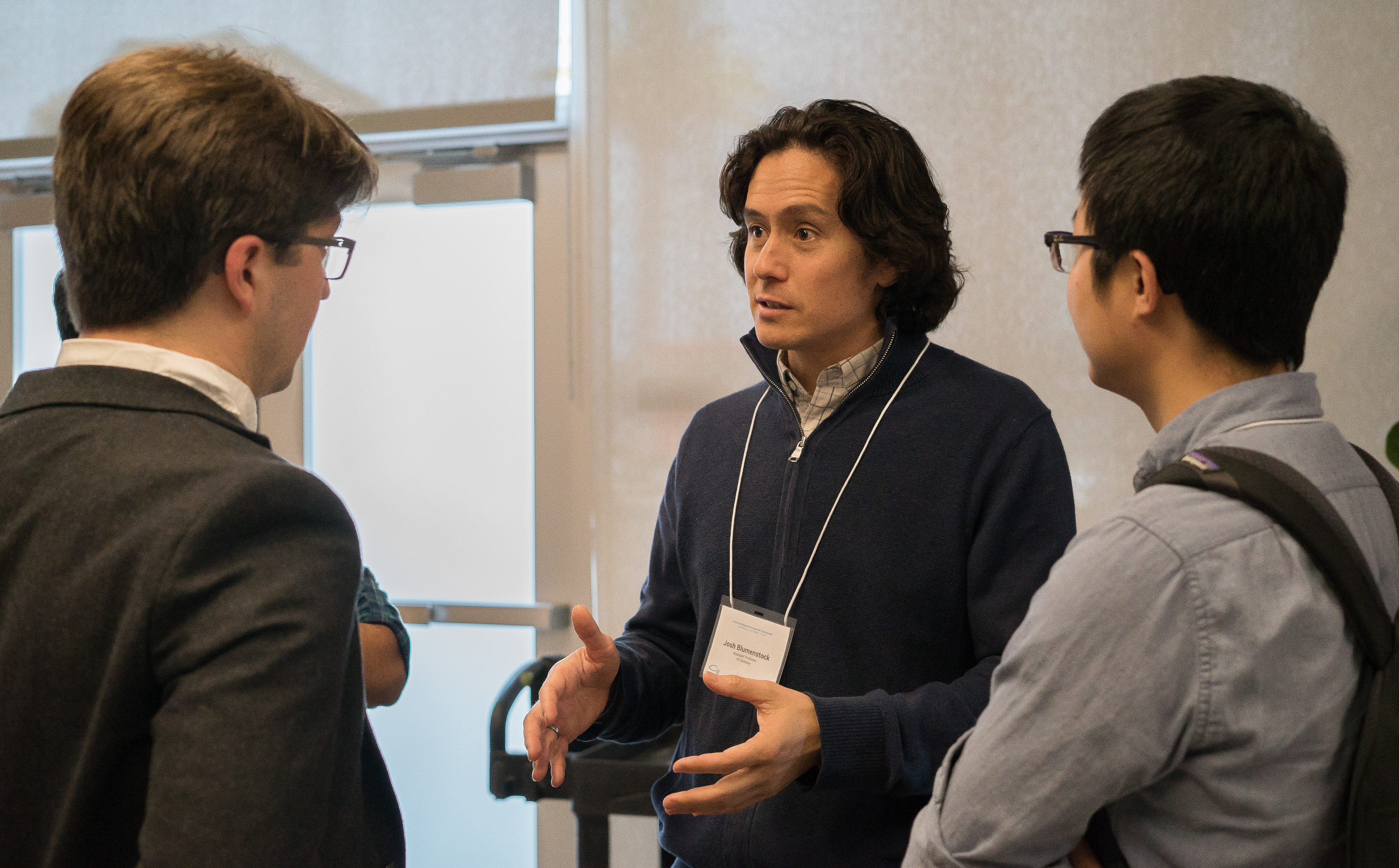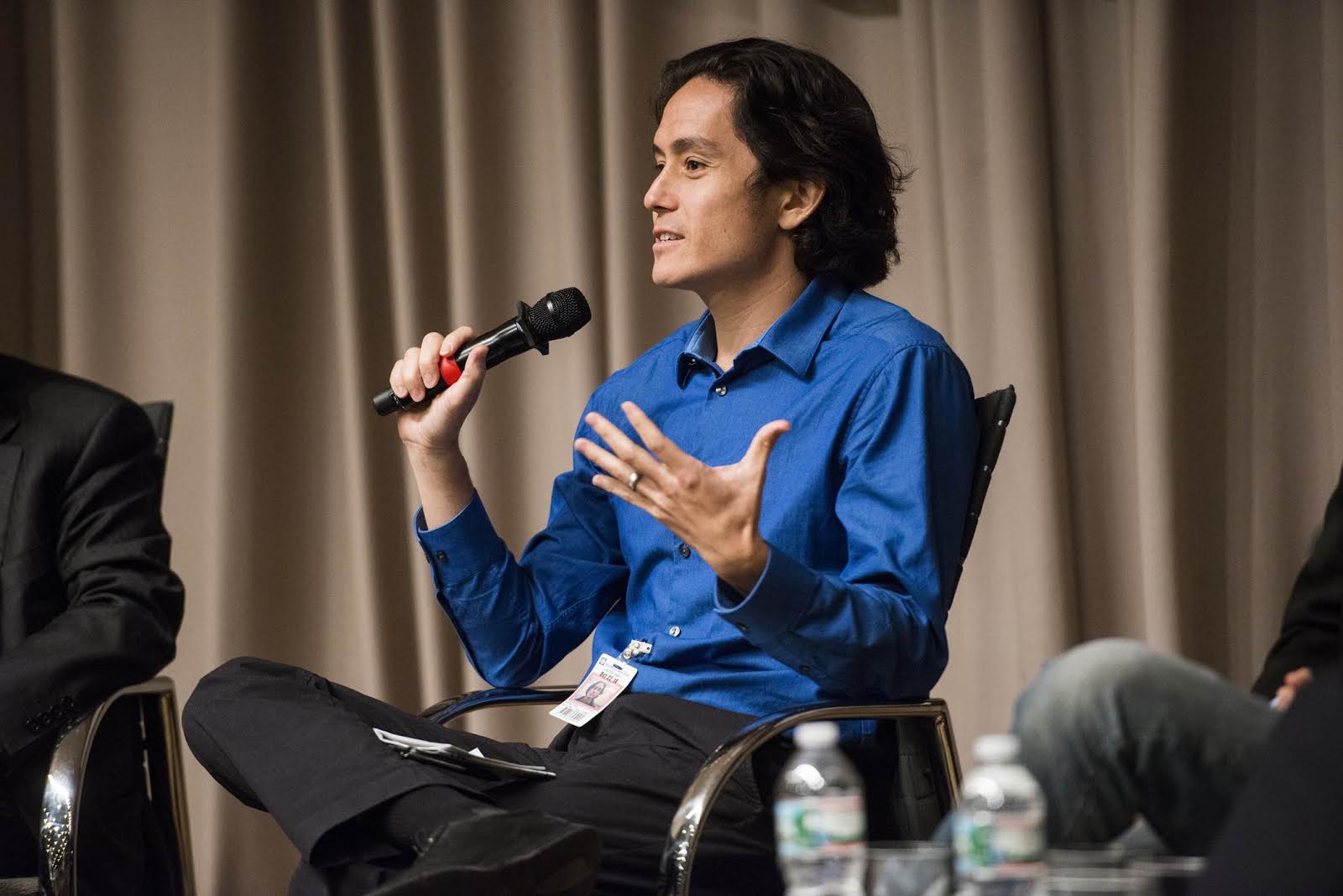Assistant Professor Josh Blumenstock has been awarded the prestigious National Science Foundation (NSF) CAREER award for his research designing welfare-centric machine learning. The NSF funds research and education in science and engineering, through grants, contracts, and cooperative agreements.
The NSF Faculty Early Career Development (CAREER) Program supports early-career faculty who have the potential to serve as academic role models in research and education, as well as lead advances in the mission of their organization. The award assists early-career faculty in building a strong foundation for a future of leadership by integrating research and education.
Welfare-Centric Machine Learning

The award will support Blumenstock’s work on a new paradigm of algorithmic decision-making — one that prioritizes social impact from the start. When algorithms are used to make decisions, they are typically designed for profit maximization, neglecting the impact of those decisions on society’s well-being. Algorithms may start making irresponsible payday loans, addictive apps, and fake news, Blumenstock says, with the potential for harmful side effects on individuals and society.
“In real-world settings, we typically care about more than maximizing profits: we want to allocate scarce resources in a way that carefully balances multiple societal objectives, and which ideally improves the welfare of society,” Blumenstock explained.
By focusing on developing welfare-centric machine learning, Blumenstock hopes his research will inspire people designing automated decisions to account for the social consequences of those decisions. One case Blumenstock’s research focuses on is lending; for example, a bank might develop an algorithm to predict customers with a high probability of loan repayment. In addition to profit maximization, Blumenstock explains, “The welfare-centric approach would provide the bank with alternative lending models that explicitly balance the predicted ‘welfare impact score’ of a loan alongside the traditional credit score.”
In order to support welfare-centric machine learning, Blumenstock aims to build a formal, quantitative framework to define and measure social welfare in different settings. His past work pioneered the use of phone and social media data to estimate wealth and poverty, and he wants to build on that research to measure the impacts of algorithmic decisions on welfare.
Teaching Welfare-Centric Machine Learning
 Blumenstock also plans to use the grant in his teaching about machine learning. “For years, I’ve taught courses on machine learning — in other words, ways to make accurate predictions from data, and use those predictions to automate decision-making,” Blumenstock says. “But an uncomfortable fact about machine learning is that the vast majority of the technology was designed with the ‘Silicon Valley’ use case in mind. Massive amounts of data are analyzed to make specific profit-related predictions — about what products a person might buy, what news they should read, and what ads they’re likely to click on.”
Blumenstock also plans to use the grant in his teaching about machine learning. “For years, I’ve taught courses on machine learning — in other words, ways to make accurate predictions from data, and use those predictions to automate decision-making,” Blumenstock says. “But an uncomfortable fact about machine learning is that the vast majority of the technology was designed with the ‘Silicon Valley’ use case in mind. Massive amounts of data are analyzed to make specific profit-related predictions — about what products a person might buy, what news they should read, and what ads they’re likely to click on.”
Blumenstock will use this grant to design courses for graduate and undergraduate students and workshops for policymakers and practitioners on using machine learning in a way that prioritizes the well-being of society. Though Blumenstock knows that it might be hard to convince the private sector to adjust their mindset about algorithms, he remains optimistic: “I believe some companies would be willing to make modest sacrifices in profit to make more socially responsible decisions.”










